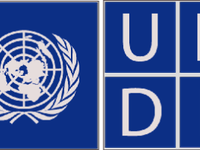


UNDP in Viet Nam works with the Government to build on the significant poverty reduction and socio-economic development successes of the past two decades and meet the emerging challenges Viet Nam today faces as a new lower middle-income country.
Viet Nam now requires best practice, high-quality policy advice on how to respond to a range of acute challenges focussed on Inclusive and Equitable Growth to address widening inequalities and disparities within society, Governance and Participation to promote government accountability, human rights and access to justice along with Sustainable Development to answer emerging climate change and green growth questions.
UNDP’s projects in Viet Nam, delivered under the results-oriented UN One Plan 2012-2016, directly benefit from our comparative advantages as a global network that is part of a broader UN system.
Our projects highlight the mutual commitment of the Government and UNDP, underpinned by the Standard Basic Agreement on Assistance signed in 1979, to combine Viet Nam’s integration into the global economy with a human development approach that works for all the country’s citizens, especially its most vulnerable groups.
The One Plan 2012-2016, marking the second generation of the Delivering as One (DaO) Initiative, is designed to respond to Viet Nam’s needs as a new middle-income country.
As part of the One Plan and in collaboration with other UN partners, UNDP aims to more effectively promote and support inclusive, equitable and rights-based development in Viet Nam and respond to Government needs for high quality policy support to address Millennium Development Goals (MDGs) and national priorities as outlined in the Socio-Economic Development Strategy 2011-2020 and the Socio-Economic Development Plan 2011-2015.
The Government and UNDP’s cooperation is geared towards meeting the MDGs and Viet Nam’s own development benchmarks. Key focus areas of our support include: 1) Inclusive and Equitable Growth, 2) Governance and Participation, 3) Sustainable Development.
UNDP in Viet Nam is also working with other UN partners to shape the Post-2015 Development Agenda with a broad cross section of Vietnamese society consulted.
In 2010, Viet Nam attained middle-income status following a period of dramatic economic growth and a reduction in the overall poverty rate, from 58 to 14 per cent between 1993 and 2008 and an estimated 11.8 per cent in 2011.
With support from the UN and other development partners, the nation has met a majority of its MDGs at a national level ahead of the 2015 deadline with particularly impressive progress made on MDG 1 focussed on poverty reduction. Viet Nam’s national institutions are more experienced and mature after two decades of doi moi (renovation) and the nation is increasingly engaged in global and regional institutions.
However, Viet Nam now needs quality, sustainable growth and to ensure a greater balance between economic, human and sustainable development. UNDP today is working with the Government and people of Viet Nam to meet these challenges and act as a partner for inclusive growth based on mutual trust and respect. In particular, we are using our comparative advantages in key focus areas to build a more inclusive, sustainable and equitable future for the people of Viet Nam.
In the area on Inclusive and Equitable Growth, Viet Nam has won global recognition for its spectacular achievements. However, pockets of poverty remain with half of ethnic minority people in 2012 still living below the poverty line and lagging behind MDG national averages.
UNDP is helping Viet Nam design and implement national poverty reduction and social assistance programmes targeting the poorest members of society, especially ethnic minority communities.
Other key stakeholder-recognized UNDP achievements include the Viet Nam Statistical Development Strategy, on-going revision of the Law on Statistics 2003, quality national MDG Reports and the establishment of a Ethnic Minority Policy Forum in 2012 to bring ethnic minorities into mainstream efforts to reduce poverty.
Regarding the Governance focus area, UNDP Viet Nam has successfully developed targeted interventions to benefit public service system, law-making and law-enforcement institutions as well as civil society development, anti-corruption and human rights to allow the country’s governance system to keep pace with rapid economic development.
These nationally executed projects are built on our three main governance pillars: parliamentary development, rule of law and access to justice, public administration reform and 4 cross-cutting issues of human rights, civil society, anti-corruption and women empowerment.
As a provider of policy advice, UNDP Viet Nam’s positioning in the area of governance allows it to have a positive influence on a broad spectrum of policy outcomes. This has been underscored by the impact of UNDP’s initiative of the Viet Nam Provincial Governance and Public Administration Performance Index (PAPI), which has informed the central and provincial governments of evidence about what have worked, what have not worked and what need to be improved in six key governance areas, i.e. participation at the local level, transparency, vertical accountability, control of corruption, public administrative procedures and public service delivery.
In the Sustainable Development focus area, new emerging threats such as climate change, depleted natural resources and environmental damage are threatening the sustainability of Viet Nam’s development.
UNDP in Viet Nam quickly identified these risks and successfully tailored specific solutions in key areas encompassing climate change and green growth, REDD+, energy efficiency, efficient use of natural resources and environmental management and disaster risk reduction.
As a lead international agency supporting capacity building for disaster management in Viet Nam since the early 1990s, today UNDP is mapping out a sustainable path for the Government to follow to overcome these new challenges, while achieving MDGs and the country’s development targets.
Women’s Empowerment has emerged as a new area of focus, with UNDP working to mainstream gender equality across a number of focus areas. Promising results are already being delivered from a range of diverse areas, including giving women a bigger voice in the public sector, in land rights, UN-REDD, disaster risk reduction and climate change adaption, along with gender mainstreaming in international environmental governance work. These initiatives going forward will give women and girls in Viet Nam a greater say in their futures and the country’s development journey.



